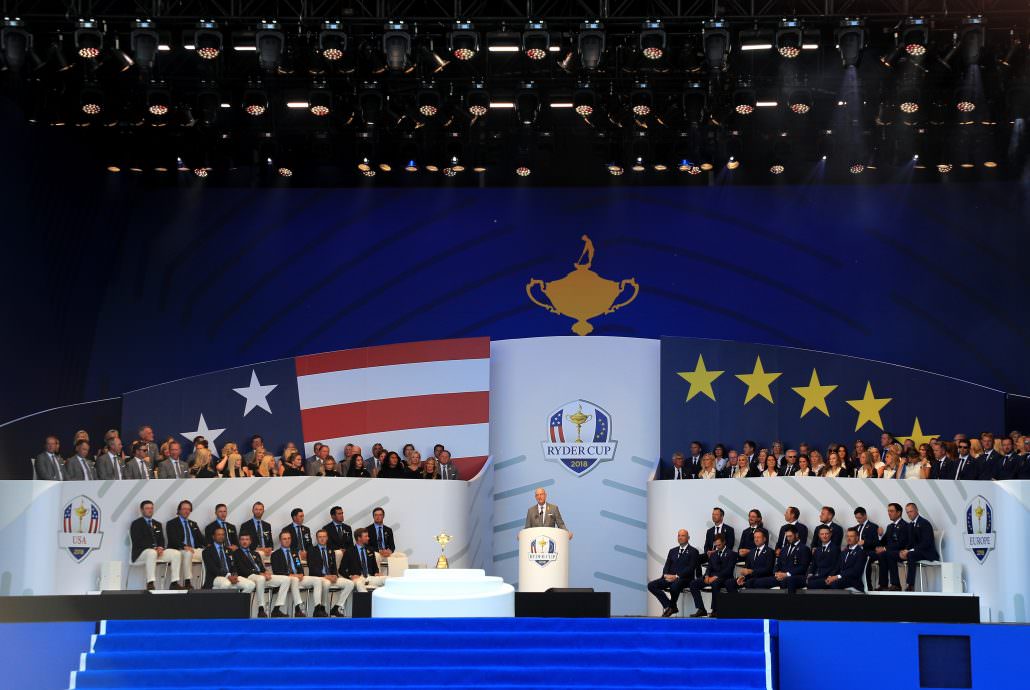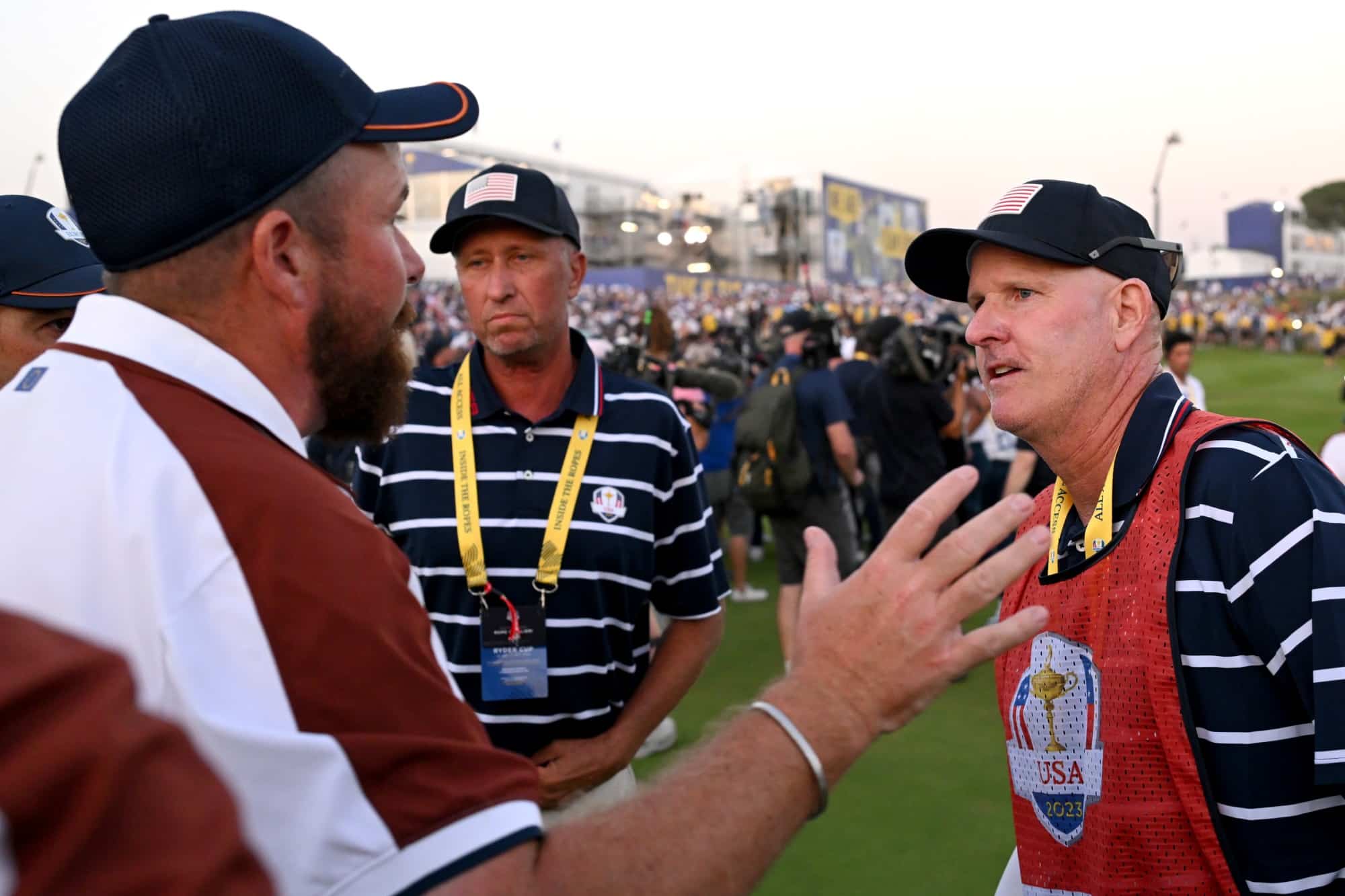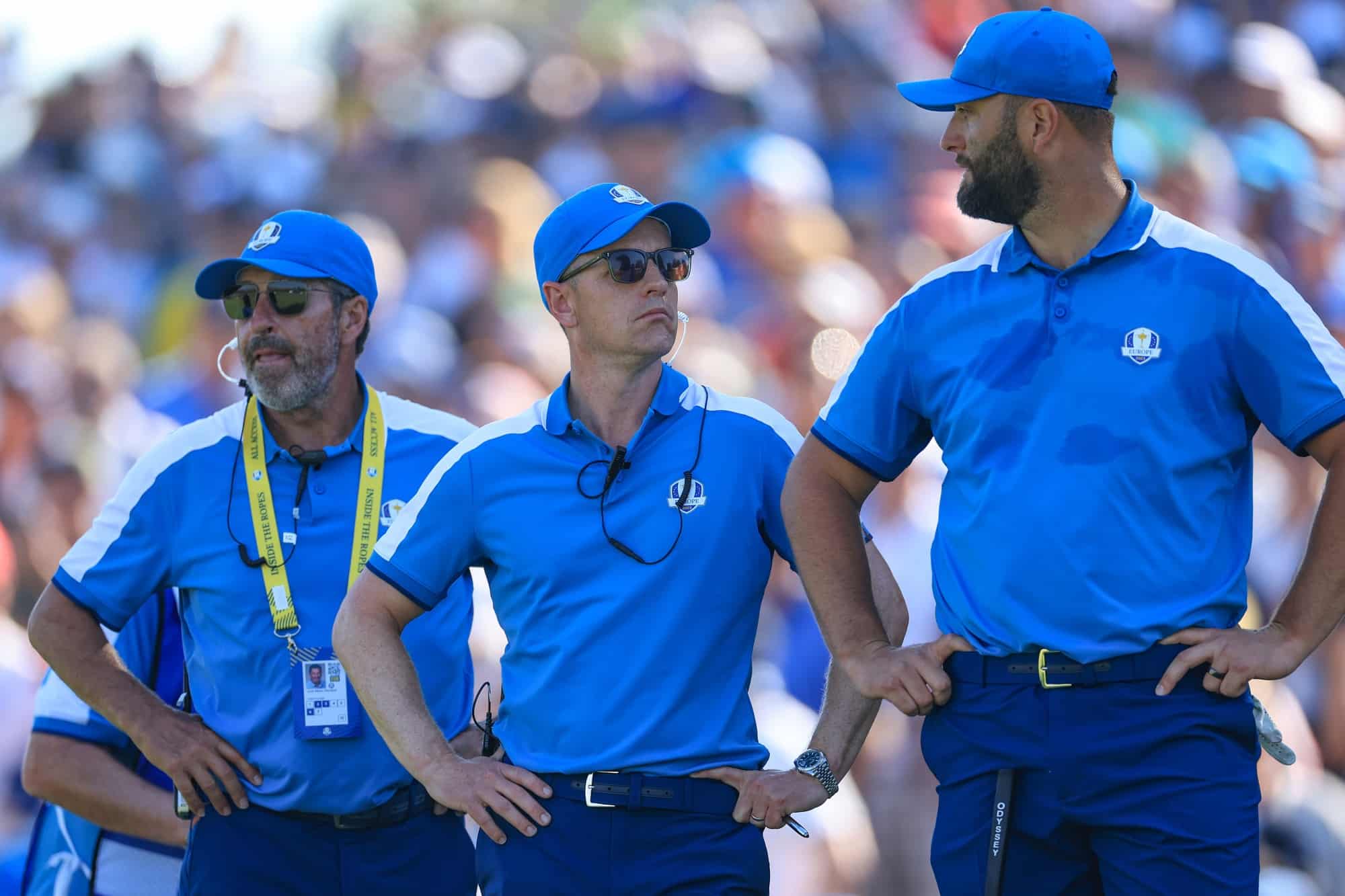
‘It’s being slowly eroded by money’: Is the Ryder Cup at risk of being ruined forever?
On The Slam Podcast by NCG, award-winning journalist Richard Gillis spoke of his concern for the future of the Ryder Cup and how it could be “easily ruined”
Money Money Money.
Golf is certainly a rich man’s world with many of the sport’s biggest stories in recent years being centred around millions (and billions) of green notes.
LIV Golf has snatched some of the game’s biggest names with lucrative fees and $25 million purses, while the PGA Tour nailed down its remaining stars by dramatically increasing payouts too.
The US circuit and the Public Investment Fund, the main investor in LIV, now want to sign a deal where financial benefits for both sides will no doubt be a focus point of negotiations.
On NCG’s The Slam Podcast, award-winning writer Richard Gillis expressed deep concern for how money could reshape the future of the Ryder Cup – which begins this week in Rome.
Gillis’ own podcast, Unofficial Partner, discusses the many branches of sports business and he took a deep dive with us, using examples of how finances already shape golf’s calendar.
“My worry is for the event itself,” Gillis said. “I really do worry that where we are from the business of golf perspective – I worry about the Ryder Cup.”
“We love it, but it’s actually quite a fragile thing. They could ruin it. I remember talking to Keith Pelley on our podcast and saying, ‘You could easily ruin the Ryder Cup, you could make it four days, you could make it every year’.
“The money wants more and more. So be careful with it. And one of the things I’m concerned about is the way in which they’ve gone to six (Captain’s) picks because politically, it gives them a bit of room and you’ve got the Koepka question and do they bring the LIV players in.
“I just worry about the status of the Ryder Cup and its position because when you look at the way in which it’s about money, unfortunately – when you look at the season, there are no majors now after July.
“You think, ‘Why is that?’ And it’s to do with money and they’re making space in the calendar for the FedEx Cup – things people don’t give a toss about, the FedEx Cup, the Olympics. Who cares about that compared to The Open, the Masters or the Ryder Cup?

“Golf fans are on the side looking at this fairly bemused and thinking, ‘Hang on a minute’ – Most people watch golf a couple of times a year or every now and then – the rest of us who are really interested in it will always be interested in it and put up with all their s***.
“If you get rid of the Ryder Cup,” he added, “you are getting rid of a huge thing. I’m not saying they are going to get rid of it, but they are degrading it and it’s being slowly eroded by money and that’s my bigger worry about the event – I’m a huge, huge fan of it.
“I love it and it’s one of the things I look forward to, but I will be really cross if they start playing around with it too much.”
Less is more… isn’t it?
Much like many sporting events, the Ryder Cup is played in a cycle. In this case, Europe and America play each other every two years and alternate between home venues.
Events such as the World Cup in football or rugby are held every four years. The absence between each tournament is what drives anticipation and excitement.
To use football as an example, however, there is a current cycle of a World Cup and a European Championships every two years, now with the Nations League, organised by UEFA, plugging the gaps.
Is less more anymore? Having commented on the fragility of the Ryder Cup’s position, Gillis pointed out a similar issue it could face if the organisers were to ever alter its cycle.
“The easiest way of making more money is just to do more stuff. It’s like selling more cans of Coke – you make more money,” he said.
“So if you’re in charge of the Ryder Cup, if you’re in charge of golf or football or the World Cup or Formula 1 – do more races, do more matches.
“We all say no because one of the central tenets of marketing is scarcity. The really hard job is protecting scarcity because we like the Ryder Cup because it is three days every two years – that’s part of its appeal.
“We like the World Cup because it’s once every four years. If you start getting it every year, an 8-year-old could tell you what’s going to happen.
“But that’s how economics drives a lot of decisions and if your job is to make more money for your organisation, what are you going to do? And we have to protect the game from the people who are in charge of it sometimes.”
Is the Ryder Cup future a good one? Listen to Richard Gillis, author of The Captain Myth: The Ryder Cup and Sport’s Great Leadership Delusion, on The Slam Podcast here!
Are future Ryder Cups at risk of being ruined? Tell us on X!
Matt Chivers

Now on the wrong side of 25, Matt has been playing golf since the age of 13 and was largely inspired to take up the game by countless family members who played golf during his childhood.
Matt is a member at Royal Cinque Ports in Deal playing off a 5 handicap, just a pitching wedge away from his hometown of Dover where he went to school and grew up. He has previously been a member at Etchinghill and Walmer and Kingsdown in Kent.
Having studied history at the University of Liverpool, Matt went on to pass his NCTJ Exams in Manchester a year later to fulfil his lifelong ambition of becoming a journalist. He picked up work experience along the way at places such as the Racing Post, the Independent, Sportsbeat and the Lancashire Evening Post.
Matt joined NCG in February 2023 and is the website’s main source of tour news, features and opinion. He has reported live from events such as The Open, the Ryder Cup and The Players Championship, having also interviewed and spent time with some of the biggest names in the sport.
Consuming tour golf on what is a 24/7 basis, you can come to Matt for informed views on the game and the latest updates on the PGA Tour, DP World Tour, LPGA Tour, Ladies European Tour and LIV Golf.
What’s in Matt’s bag: Cobra LTDx LS driver, Cobra LTDx 3-wood, TaylorMade P7MC irons, Ping Glide 4.0 wedges, Odyssey putter.









